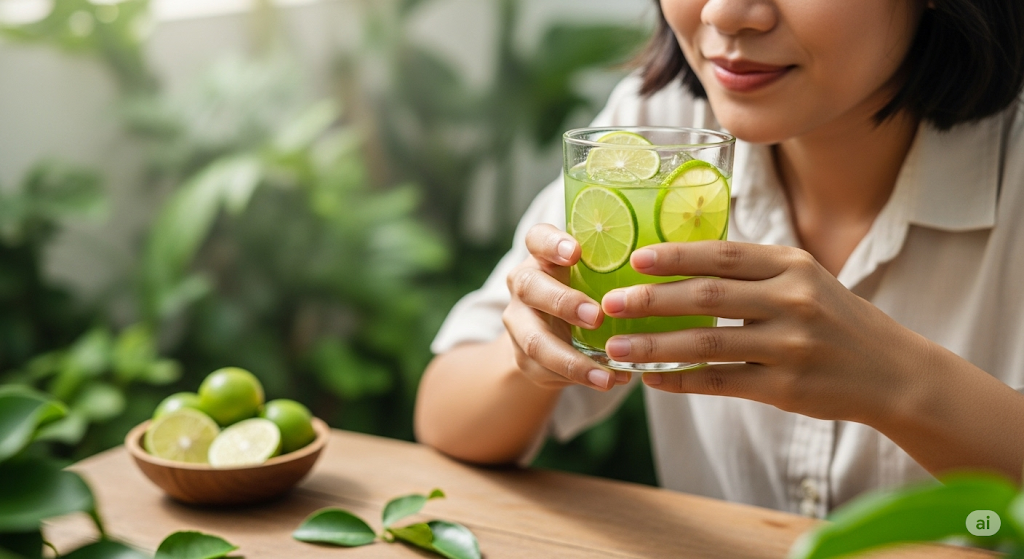Answer:
Kidney stones form when certain minerals in urine, such as calcium, oxalate, uric acid, and salts, crystallize and accumulate in the kidneys. Small stones often cause no symptoms and may pass naturally. However, larger stones can cause lower back pain, urinary tract obstruction, or infection, requiring treatment such as endoscopic surgery, open surgery, or lithotripsy to prevent complications.
Several measures can help prevent kidney stones: maintaining a healthy diet, drinking enough water daily, and consuming other beneficial beverages like pineapple juice, pomegranate juice, corn silk tea, and lemon juice (rich in citrate). Lemon juice contains citric acid, which converts to citrate in the body. Citrate prevents calcium from binding with oxalate, thus reducing the formation of calcium oxalate stones, the most common type, accounting for 80% of kidney stone cases.
 |
Lemon juice helps prevent calcium oxalate stones. Image generated by AI |
Lemon juice helps prevent calcium oxalate stones. Image generated by AI
Drinking lemon juice also increases urine volume, diluting stone-forming substances and facilitating their elimination. It increases urine pH, making it more acidic and further inhibiting calcium oxalate stone formation. Besides preventing kidney stones, lemon juice provides vitamin C, boosting the immune system and aiding digestion. However, excessive consumption is not recommended as it cannot eliminate all types of stones. If you have uric acid kidney stones, lemon juice isn't a good choice. It can increase uric acid concentration in the urine, promoting the formation of this type of stone.
Lemon juice is not a replacement for water. You should drink enough water daily as recommended (about 2 liters), depending on your activity level, to dilute minerals and salts in the urine, reducing the risk of crystallization and stone formation. You can drink one or two glasses of diluted lemon juice daily. Consume fresh, unsweetened lemon juice, avoiding honey if you have metabolic disorders. It's best to drink it after meals, not on an empty stomach.
If kidney stones are detected, consult a doctor for advice on how to pass them (if small) or for treatment (if large). Avoid self-treating based on unverified information to prevent harm.
Dr. Pham Cao Thap, MD
Department of Urology
Center for Urology - Nephrology - Andrology
Tam Anh General Hospital, TP HCM
| Readers can submit questions about urological diseases here for doctors to answer. |












